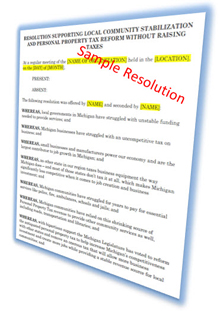The full House passed a package of bills, House Bills 5566-5575, that seek to deal with the bankruptcy in the City of Detroit. The state will appropriate $194.8 million dollars that will go toward the city’s pension system.
In exchange there are a number of conditions set forth in the package. The bills create an oversight commission that will have approval over the city’s major financial decisions including contracts over $750,000 and collective bargaining agreements. As amended in committee if the commission does not reject a contract for $750,000 or more in 30 days it would be deemed approved. Public Act 312 awards are also subject to review by the commission.
The legislation also requires the city to establish the position of chief financial officer. The bills as amended in committee allow the City to choose between defined contribution plans and defined contribution for new hires but caps the city contribution at 7 percent of base pay. The package also prohibits the City of Detroit from opting out under PA 152 of 2011.
The bills limit travel pay for retirement system board members. Additionally they prohibit new millages for the Detroit Institute of Art. This was an area of concern for many legislators and this particular bill passed more narrowly than the others (66-44).
The bills very narrowly define eligibility for these provisions as a city over 600,000 that is in bankruptcy.
Samantha Harkins is the Director of State Affairs for the Michigan Municipal League. She can be reached at 517-908-0306 or email at sharkins@mml.org


